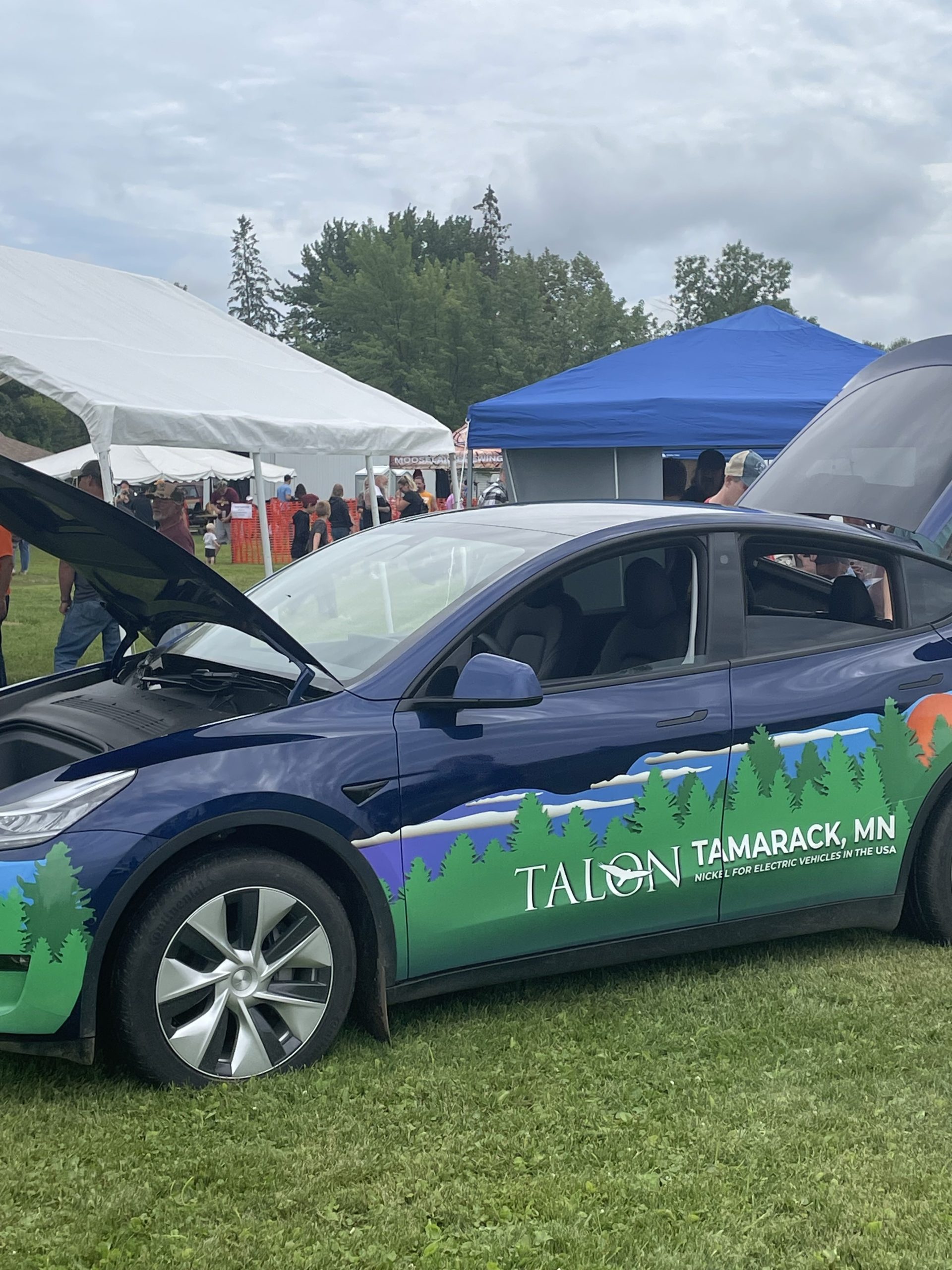
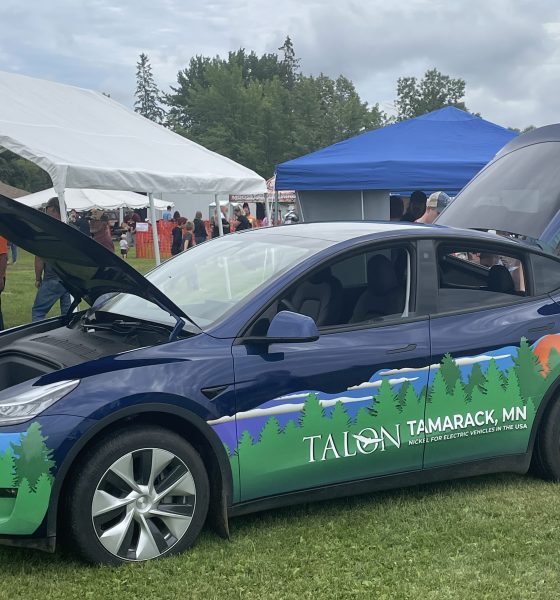
News
Tesla supplier Talon Metals on Manchin EV Bill, Tesla & more
Tesla supplier, Talon Metals (TLO.TO) gave Teslarati an exclusive interview and we talked about the Manchin EV Bill, Tesla and more.
I received some great feedback on one of my recent articles from Todd Malan, Chief External
Affairs Officer & Head of Climate Strategy at Talon Metals, one of Tesla’s key suppliers of nickel
and other battery minerals in the USA.
The two companies signed an offtake partnership in January of this year to supply nickel from Talon’s project in central Minnesota. Todd is based in Washington DC for Talon and therefore has a front-row seat to the wrangling among various parties regarding Senator Manchin’s new EV tax incentives in the Infrastructure Reduction Act of 2022.
As of this morning, voting was slated to begin today and the bill is expected to pass on a partisan line vote in the early morning of Monday. If the House passes it next week, it should be on President Biden’s desk by the end of the week.
Manchin’s EV tax credit proposal
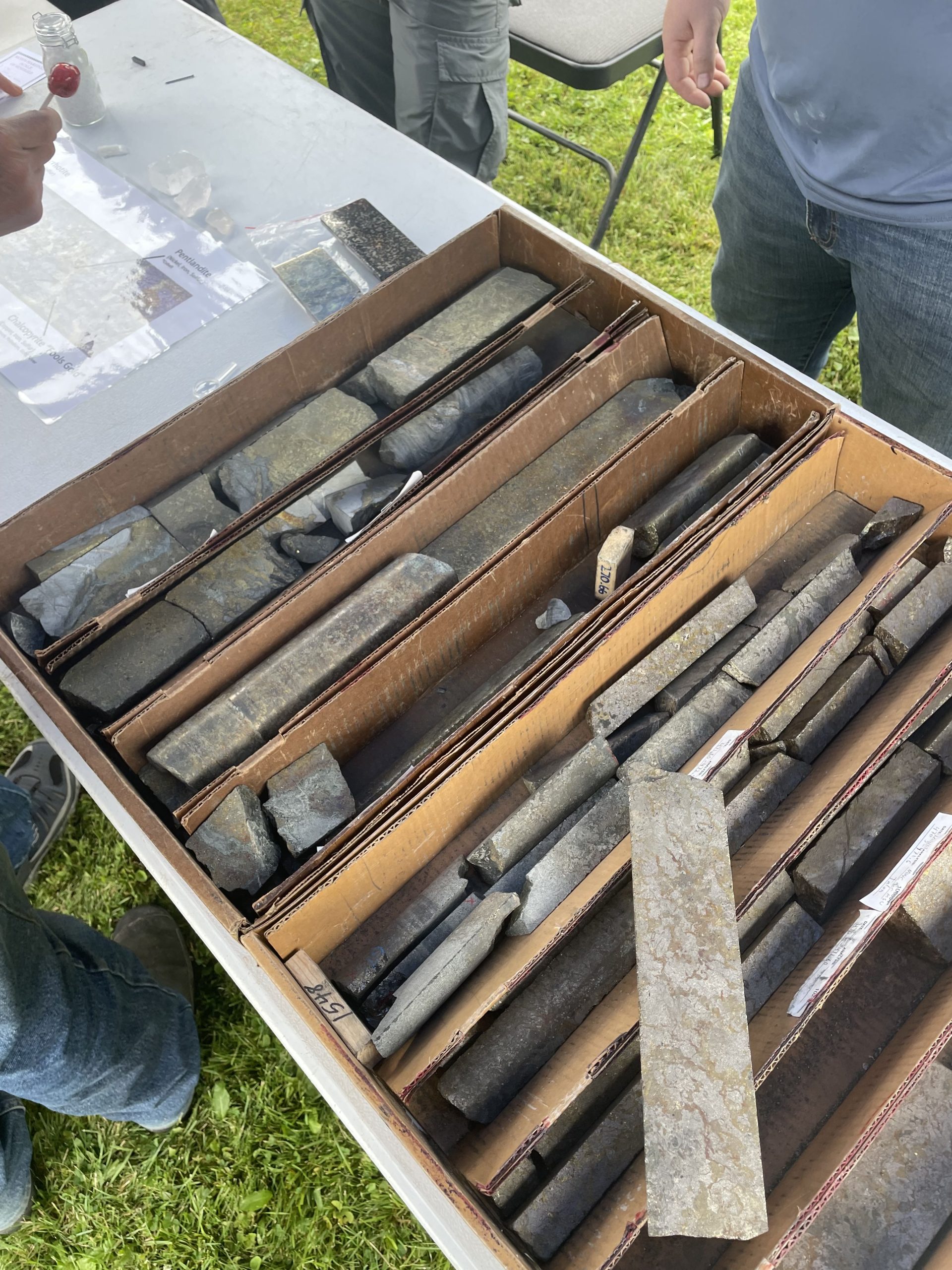
Todd shared his thoughts on Manchin’s EV tax credit proposal. On one hand, it’s breathtakingly generous in that it lifts all numerical limits on EVs that are eligible for the $7500 tax credit.
Previously, 200,000 cars per year for each nameplate. On the other hand, Manchin’s proposal sets some new eligibility parameters around the cost of the EV, the income level of the buyer, and the source of the battery raw materials (sourced from the US or countries that have a Free Trade
Agreement with the US).
As I reported last week, some automakers are unhappy with Manchin’s strings on the EV credit, others like Tesla seem to be taking more of a “can do” approach when it comes to the mineral content provisions.
Todd also walked me through the comprehensive approach that Senator Manchin took to
supporting domestic mining and mineral processing across the full bill.
So, Manchin isn’t just telling automakers to buy from domestic sources of minerals and metals from domestic sources and leaving it to them. He also added significant new government support to help the supply chain get up and running on an urgent basis.
The fact that he got commitments from Democratic leaders in Congress and President Biden to reform the permitting process in the US in separate legislation (not just for mines but for solar, wind and hydrogen too) is another signal of Manchin’s holistic approach to ramping up the full battery supply chain in the US and also rely on allies that happen to be mineral powerhouses like Australia and Canada.
Todd had a very optimistic view that all of these provisions, including the EV credit, will help the U.S. address its dependency on China for batteries and scale up its capability in battery mineral production.
The core of his view is that it will take partnerships between miners, automakers,
regulators, recyclers, and other parts of the supply chain to meet the Manchin content
requirements.
Todd thinks Tesla and Ford stand out as companies leading the way in this new
approach to supply chain security.
Some automakers are not happy with Senator Manchin’s EV tax credit proposal
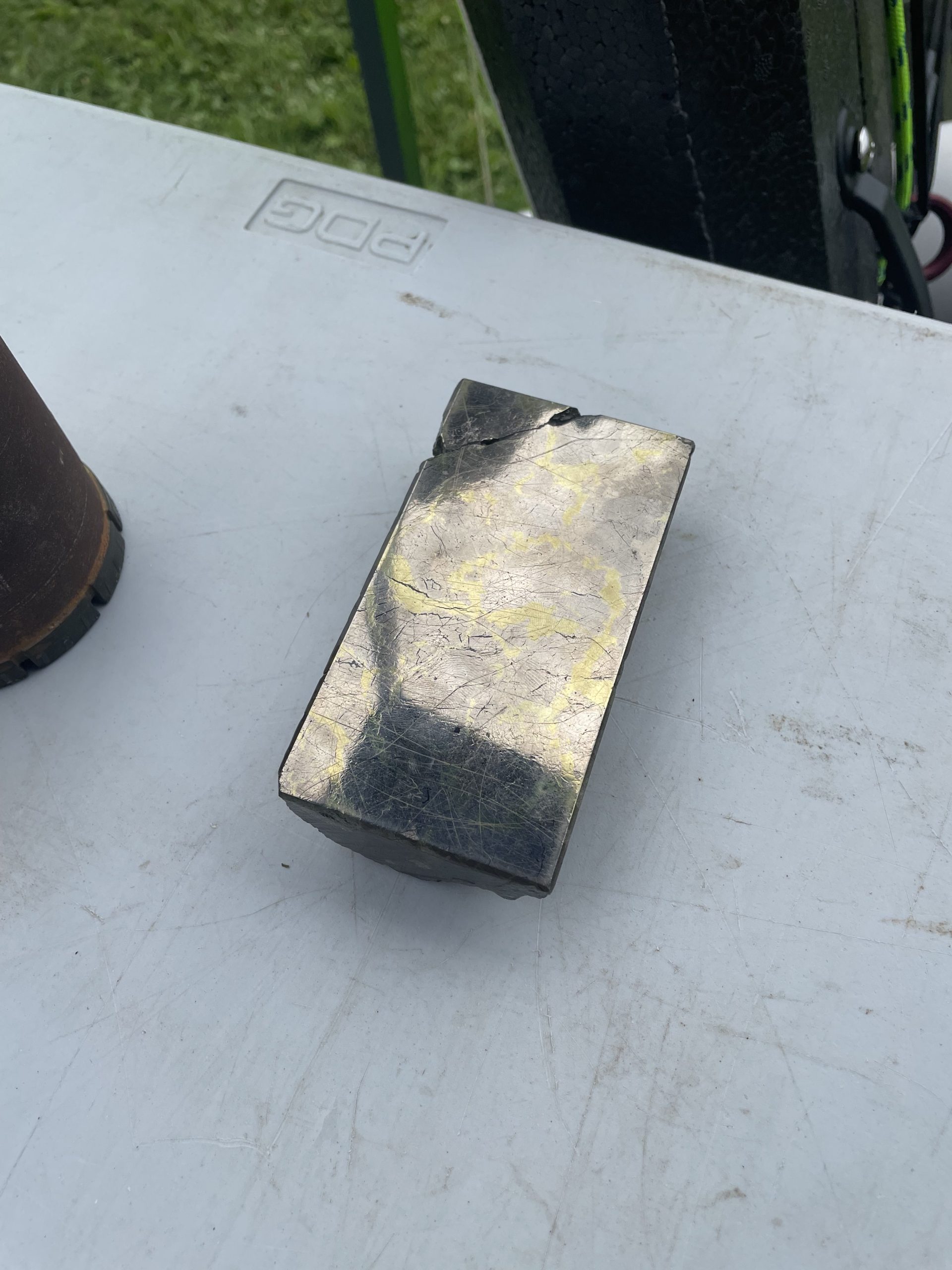
Todd read my article, Automakers are not too happy with Senator Manchin’s EV tax credit
proposal and pointed out that there was not a universal view among the automakers or the rest of the battery supply chain.
“Mazda and Rivian have been out-front in the media complaining about aspects of Senator
Manchin’s EV incentive proposal. I understand the concern that the timeline is very ambitious but on the other hand, Senator Manchin’s draft includes some of the world’s largest producers of battery materials: Canada, Chile, Australia, South Korea, etc.”
“Those countries that don’t have free trade agreements with the US, there is plenty of time (and now incentive) for them to negotiate agreements. Senator Manchin didn’t just confine the provision to the U.S., or even USMCA countries, but all countries that now or in the future have free trade agreements.”
“This is a balanced measure that will encourage domestic mining investment and development while also ensuring we can draw on our allies for secure supplies. It may not be the cheapest option for the automakers, but supply from this broad base of countries can be ramped up to meet the requirements.”
Todd pointed out that other parts of the auto lobby had a more nuanced approach to
Manchin’s proposal to support EV adoption. The Zero Emissions Transportation Association (ZETA), in which Tesla is a lead member, was quick to offer support for Manchin’s EV incentives.
Joe Britton, ZETA Executive Director was quoted in a number of media articles admitting that the domestic and ally content provisions would be hard to meet but that they could be met.
“If you look at the landscape as it exists today, it’s a challenge, but it’s doable,” said Joe Britton, the head of the Zero Emission Transportation Association, which advocates for EV adoption, told Bloomberg.“We can meet these metrics.”
Britton also has been praising the Manchin bill for what it will do for EV adoption. He told
News12 Westchester that he hopes the rebate can entice more people to purchase EVs. Britton said:
“In most areas of the country, especially the Northeast, it is five to six times more expensive to drive your vehicle on gasoline than it is by electricity. So, by making these vehicles more affordable on the front end, you’re really driving down that total cost of ownership”
As with most people that are involved with Tesla as suppliers, Malan was extremely careful to not speak for Tesla or speculate on their positions. But I realized that someone glancing at the headlines without reading through the article might assume that Tesla was of the same view as the legacy auto industry.
We all know Tesla prefers to speak for itself and Elon Musk shared a thought about Senator Manchin on Twitter yesterday. Although many were wondering what his tweet meant, I think it’s pretty clear he thinks Manchin is doing something right.
Thank goodness for Senator Manchin
— Elon Musk (@elonmusk) August 5, 2022
Partnerships across the value chain will be key
Todd pointed out to the Detroit News yesterday that it will take a range of
partnerships to meet the Manchin goals. He pointed out that Tesla and Talon have explicitly described their supply relationship as a partnership. Tesla is working with its suppliers.
Todd told me that everyone will need to work together to meet these goals.
“We need everyone working together to meet these ambitious goals in the Manchin bill.
Mining is the front end of the supply chain and it takes enormous knowhow, capital, and risk tolerance to discover, delineate, permit, construct and then safely operate a mine to supply battery minerals.”
“Processing has been the Achilles heel of the supply chain in the U.S. Luckily. Congress just provided new resources to address this issue in the bipartisan infrastructure bill. Everybody’s going to have to work together. The auto manufacturers, the miners, the people that do processing, and government at state and federal level.”
“Senator Manchin and others in Congress realize that governments are going to have to focus on improving the permitting process – not to cut corners in environmental protections but to make the process more certain, efficient, and reliable.”
“Not just for mines, processing or even EV battery factories – but also solar, wind, hydro and hydrogen projects. We can not afford a disorganized, uncoordinated, and inefficient regulatory process that causes unnecessary delays in progress. We need all these projects to come online to address the climate crisis while also ensuring we protect the environment through science-based permitting.”
Talon Metals on Senator Manchin’s proposal.
I’ve seen a lot of mixed feedback on Senator Manchin’s proposal. As noted in my earlier article, many automakers like Mazda and Rivian are lobbying hard to water it down. Not as much has been heard from the companies that source raw materials like nickel and lithium in the United States. So, I asked Todd to share his take–and that of Talon Metals.
“From the standpoint of a company that’s trying to build a responsible nickel mine in
Minnesota, we think that Senator Manchin has struck a good balance in this bill. First, it provides the most generous set of incentives for EV adoption ever enacted in law.
“It also encourages auto companies to work with domestic mines and mines in allied countries like Australia, Canada, and Chile and it provides some time for projects to ramp up. It also provides time for countries that don’t have FTAs to engage with the US and negotiate. Yes, it is a stretch goal but that seems appropriate given the climate crisis and our dependency on countries like China and Russia for battery supplies.”
“This is a carefully balanced bill that does push everyone to rise to the occasion. But that is appropriate because we want to create high-quality jobs in America as part of the energy transition and we don’t want to rely on Russia and China for the supply chain of battery minerals. It’s a matter of national security.”
How can automakers better work with their suppliers?

I asked this question because if automakers truly want to “get aggressive”; as Senator Manchin challenged them to do, then perhaps they need to take a page from Tesla and other leaders’practices.
“Having a Tesla off-take agreement in place has changed the perception of our project in the community. It’s very credentializing and our employees are proud of the partnership. People clearly understand that our proposed mine has a purpose: to supply nickel for the EV battery supply chain and contribute to the energy transition. This has helped shape how people perceive the project. It has a purpose and an important one.”
“Many of the large automakers are helping supply partners apply for some of the significant new funding opportunities being made available through the Bipartisan Infrastructure Bill. The Department of Energy is expected to give out over $1.8 billion in funding from that legislation this fall. This is another example of how the end-users can help the front end of the supply chain for battery materials.”
Todd commented that many auto companies are having a tough time adjusting to the new
reality of scarce commodities.
“They used to only focus on price and quality with a yearly focus on driving down the price. It’s a whole new game now, as they learned in the chip crisis. Some are still adjusting their mindset to scarcity and competition for supply.”
“It requires a change in mindset. No longer can the big auto company demand ever-lower price year over year. Smart end users have changed their mindset to partnership. That means understanding their partners’ issues, helping them to maximize productivity, access newtechnology, ramp up production, improve quality, and provide support during the permittingprocess or help obtain government funding.”
“This is the future, true partnership in the supply chain, from mine to cathode to recycling. That is how we meet Senator Manchin’s challenge and strengthen the supply chain for battery production.”
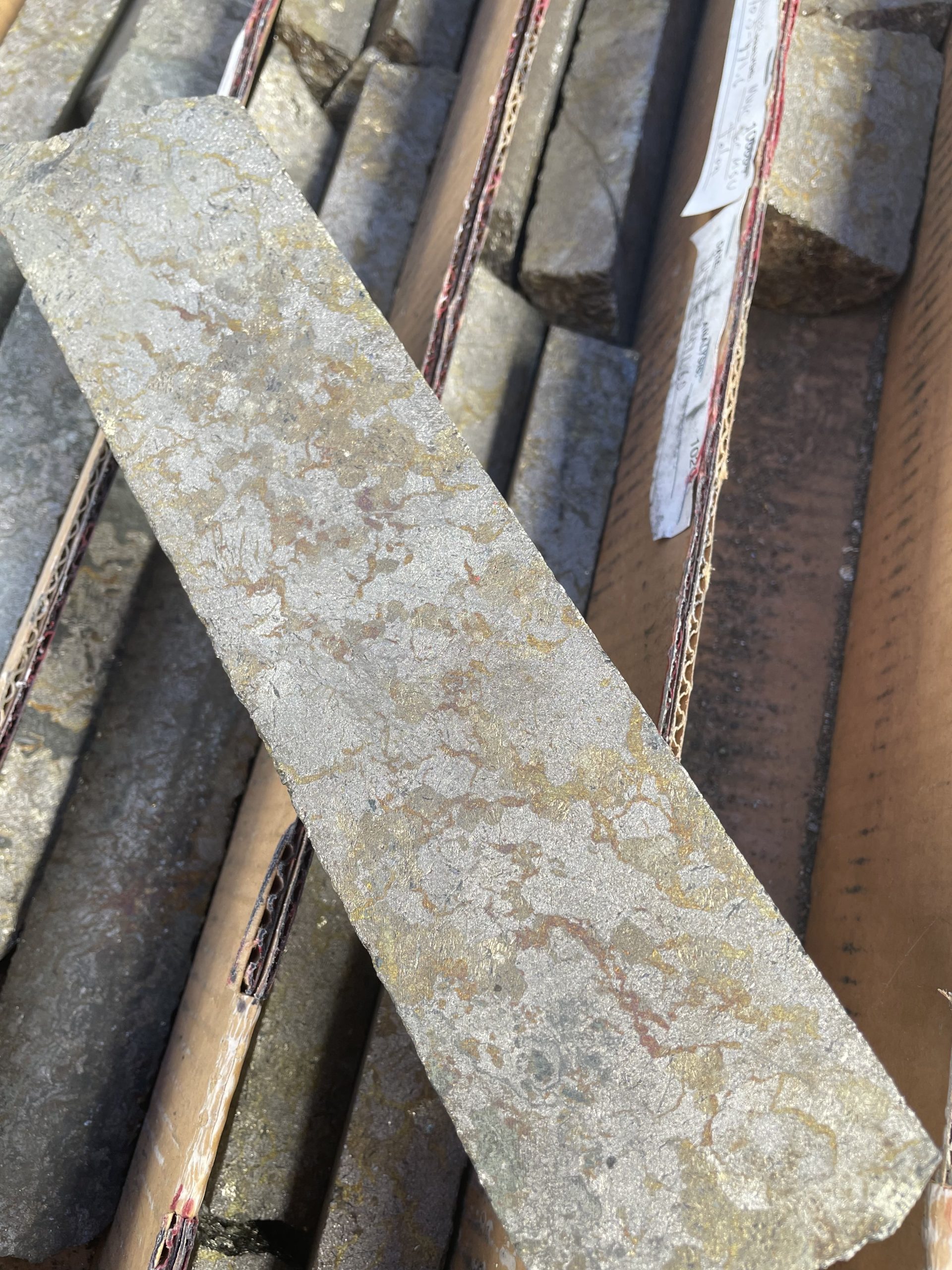
Todd didn’t come out and say it directly, but it came through in the way he talked about the Tesla. Yet again, Tesla is leading the industry in terms of securing supply from the right countries to feed its factories but also leading practices in working in partnership with key suppliers.
Knowing that I love cool rocks, Todd invited me up to Minnesota to check out what Talon is doing at Tamarack and show me some beautiful nickel samples. Todd also told me about Minnesota’s famous burger concoction, The Juicy Lucy.
Disclaimer: Johnna is long Tesla.
I’d love to hear from you! If you have any comments, concerns, or see a typo, you can email me at johnna@teslarati.com. You can also reach me on Twitter @JohnnaCrider1

News
Tesla Full Self-Driving v14.2.2.5 might be the most confusing release ever
With each Full Self-Driving release, I am realistic. I know some things are going to get better, and I know some things will regress slightly. However, these instances of improvements are relatively mild, as are the regressions. Yet, this version has shown me that it contains extremes of both.

Tesla Full Self-Driving v14.2.2.5 hit my car back on Valentine’s Day, February 14, and since I’ve had it, it has become, in my opinion, the most confusing release I’ve ever had.
With each Full Self-Driving release, I am realistic. I know some things are going to get better, and I know some things will regress slightly. However, these instances of improvements are relatively mild, as are the regressions. Yet, this version has shown me that it contains extremes of both.
It has been about three weeks of driving on v14.2.2.5; I’ve used it for nearly every mile traveled since it hit my car. I’ve taken short trips of 10 minutes or less, I’ve taken medium trips of an hour or less, and I’ve taken longer trips that are over 100 miles per leg and are over two hours of driving time one way.
These are my thoughts on it thus far:
Speed Profiles Are a Mixed Bag
Speed Profiles are something Tesla seems to tinker with quite frequently, and each version tends to show a drastic difference in how each one behaves compared to the previous version.
I do a vast majority of my FSD travel using Standard and Hurry modes, although in bad weather, I will scale it back to Chill, and when it’s a congested city on a weekend or during rush hour, I’ll throw it into Mad Max so it takes what it needs.
Early on, Speed Profiles really felt great. This is one of those really subjective parts of the FSD where someone might think one mode travels too quickly, whereas another person might see the identical performance as too slow or just right.
To me, I would like to see more consistency from release to release on them, but overall, things are pretty good. There are no real complaints on my end, as I had with previous releases.
In a past release, Mad Max traveled under the speed limit quite frequently, and I only had that experience because Hurry was acting the same way. I’ve had no instances of that with v14.2.2.5.
Strange Turn Signal Behavior
This is the first Full Self-Driving version where I’ve had so many weird things happen with the turn signals.
Two things come to mind: Using a turn signal on a sharp turn, and ignoring the navigation while putting the wrong turn signal on. I’ve encountered both things on v14.2.2.5.
On my way to the Supercharger, I take a road that has one semi-sharp right-hand turn with a driveway entrance right at the beginning of the turn.
Only recently, with the introduction of v14.2.2.5, have I had FSD put on the right turn signal when going around this turn. It’s obviously a minor issue, but it still happens, and it’s not standard practice:
How can we get Full Self-Driving to stop these turn signals?
There’s no need to use one here; the straight path is a driveway, not a public road. The right turn signal here is unnecessary pic.twitter.com/7uLDHnqCfv
— TESLARATI (@Teslarati) February 28, 2026
When sharing this on X, I had Tesla fans (the ones who refuse to acknowledge that the company can make mistakes) tell me that it’s a “valid” behavior that would be taught to anyone who has been “professionally trained” to drive.
Apparently, if you complain about this turn signal, you are also claiming you know more than Tesla engineers…okay.
Nobody in their right mind has ever gone around a sharp turn when driving their car and put on a signal when continuing on the same road. You would put a left turn signal on to indicate you were turning into that driveway if that’s what your intention was.
Like I said, it’s a totally minor issue. However, it’s not really needed, and nor is it normal. If I were in the car with someone who was taking a simple turn on a road they were traveling, and they signaled because the turn was sharp, I’d be scratching my head.
I’ve also had three separate instances of the car completely ignoring the navigation and putting on a signal that is opposite to what the routing says. Really quite strange.
Parking Performance is Still Underwhelming
Parking has been a complaint of mine with FSD for a long time, so much so that it is pretty rare that I allow the vehicle to park itself. More often than not, it is because I want to pick a spot that is relatively isolated.
However, in the times I allow it to pull into a spot, it still does some pretty head-scratching things.
Recently, it tried to back into a spot that was ~60% covered in plowed snow. The snow was piled about six feet high in a Target parking lot.
A few days later, it tried backing into a spot where someone failed the universal litmus test of returning their shopping cart. Both choices were baffling and required me to manually move the car to a different portion of the lot.
I used Autopark on both occasions, and it did a great job of getting into the spot. I notice that the parking performance when I manually choose the spot is much better than when the car does the entire parking process, meaning choosing the spot and parking in it.
It’s Doing Things (For Me) It’s Never Done Before
Two things that FSD has never done before, at least for me, are slow down in School Zones and avoid deer. The first is something I usually take over manually, and the second I surprisingly have not had to deal with yet.
I had my Tesla slow down at a school zone yesterday for the first time, traveling at 20 MPH and not 15 MPH as the sign suggested, but at the speed of other cars in the School Zone. This was impressive and the first time I experienced it.
I would like to see this more consistently, and I think School Zones should be one of those areas where, no matter what, FSD will only travel the speed limit.
Last night, FSD v14.2.2.5 recognized a deer in a roadside field and slowed down for it:
🚨 Cruising home on a rainy, foggy evening and my Tesla on Full Self-Driving begins to slow down suddenly
FSD just wanted Mr. Deer to make it home to his deer family ❤️ pic.twitter.com/cAeqVDgXo5
— TESLARATI (@Teslarati) March 4, 2026
Navigation Still SUCKS
Navigation will be a complaint until Tesla proves it can fix it. For now, it’s just terrible.
It still has not figured out how to leave my neighborhood. I give it the opportunity to prove me wrong each time I leave my house, and it just can’t do it.
It always tries to go out of the primary entrance/exit of the neighborhood when the route needs to take me left, even though that exit is a right turn only. I always leave a voice prompt for Tesla about it.
It still picks incredibly baffling routes for simple navigation. It’s the one thing I still really want Tesla to fix.
Investor's Corner
Tesla gets tip of the hat from major Wall Street firm on self-driving prowess
“Tesla is at the forefront of autonomous driving, supported by a camera-only approach that is technically harder but much cheaper than the multi-sensor systems widely used in the industry. This strategy should allow Tesla to scale more profitably compared to Robotaxi competitors, helped by a growing data engine from its existing fleet,” BoA wrote.

Tesla received a tip of the hat from major Wall Street firm Bank of America on Wednesday, as it reinitiated coverage on Tesla shares with a bullish stance that comes with a ‘Buy’ rating and a $460 price target.
In a new note that marks a sharp reversal from its neutral position earlier in 2025, the bank declared Tesla’s Full Self-Driving (FSD) technology the “leading consumer autonomy solution.”
Analysts highlighted Tesla’s camera-only architecture, known as Tesla Vision, as a strategic masterstroke. While technically more challenging than the multi-sensor setups favored by rivals, the vision-based approach is dramatically cheaper to produce and maintain.
This cost edge, combined with Tesla’s rapidly expanding real-world data engine, positions the company to scale robotaxis far more profitably than competitors, BofA argues in the new note:
“Tesla is at the forefront of autonomous driving, supported by a camera-only approach that is technically harder but much cheaper than the multi-sensor systems widely used in the industry. This strategy should allow Tesla to scale more profitably compared to Robotaxi competitors, helped by a growing data engine from its existing fleet.”
The bank now attributes roughly 52% of Tesla’s total valuation to its Robotaxi ambitions. It also flagged meaningful upside from the Optimus humanoid robot program and the fast-growing energy storage business, suggesting the auto segment’s recent headwinds, including expired incentives, are being eclipsed by these higher-margin opportunities.
Tesla’s own data underscores exactly why Wall Street is waking up to FSD’s potential. According to Tesla’s official safety reporting page, the FSD Supervised fleet has now surpassed 8.4 billion cumulative miles driven.
Tesla FSD (Supervised) fleet passes 8.4 billion cumulative miles
That total ballooned from just 6 million miles in 2021 to 80 million in 2022, 670 million in 2023, 2.25 billion in 2024, and a staggering 4.25 billion in 2025 alone. In the first 50 days of 2026, owners added another 1 billion miles — averaging more than 20 million miles per day.
This avalanche of real-world, camera-captured footage, much of it on complex city streets, gives Tesla an unmatched training dataset. Every mile feeds its neural networks, accelerating improvement cycles that lidar-dependent rivals simply cannot match at scale.
Tesla owners themselves will tell you the suite gets better with every release, bringing new features and improvements to its self-driving project.
The $460 target implies roughly 15 percent upside from recent trading levels around $400. While regulatory and safety hurdles remain, BofA’s endorsement signals growing institutional conviction that Tesla’s data advantage is not hype; it’s a tangible moat already delivering billions of miles of proof.
News
Tesla to discuss expansion of Samsung AI6 production plans: report
Tesla has reportedly requested an additional 24,000 wafers per month, which would bring total production capacity to around 40,000 wafers if finalized.

Tesla is reportedly discussing an expansion of its next-generation AI chip supply deal with Samsung Electronics.
As per a report from Korean industry outlet The Elec, Tesla purchasing executives are reportedly scheduled to meet Samsung officials this week to negotiate additional production volume for the company’s upcoming AI6 chip.
Industry sources cited in the report stated that Tesla is pushing to increase the production volume of its AI6 chip, which will be manufactured using Samsung’s 2-nanometer process.
Tesla previously signed a long-term foundry agreement with Samsung covering AI6 production through December 31, 2033. The deal was reportedly valued at about 22.8 trillion won (roughly $16–17 billion).
Under the existing agreement, Tesla secured approximately 16,000 wafers per month from the facility. The company has reportedly requested an additional 24,000 wafers per month, which would bring total production capacity to around 40,000 wafers if finalized.
Tesla purchasing executives are expected to discuss detailed supply terms during their visit to Samsung this week.
The AI6 chip is expected to support several Tesla technologies. Industry sources stated that the chip could be used for the company’s Full Self-Driving system, the Optimus humanoid robot, and Tesla’s internal AI data centers.
The report also indicated that AI6 clusters could replace the role previously planned for Tesla’s Dojo AI supercomputer. Instead of a single system, multiple AI6 chips would be combined into server-level clusters.
Tesla’s semiconductor collaboration with Samsung dates back several years. Samsung participated in the design of Tesla’s HW3 (AI3) chip and manufactured it using a 14-nanometer process. The HW4 chip currently used in Tesla vehicles was also produced by Samsung using a 5-nanometer node.
Tesla previously planned to split production of its AI5 chip between Samsung and TSMC. However, the company reportedly chose Samsung as the primary partner for the newer AI6 chip.








